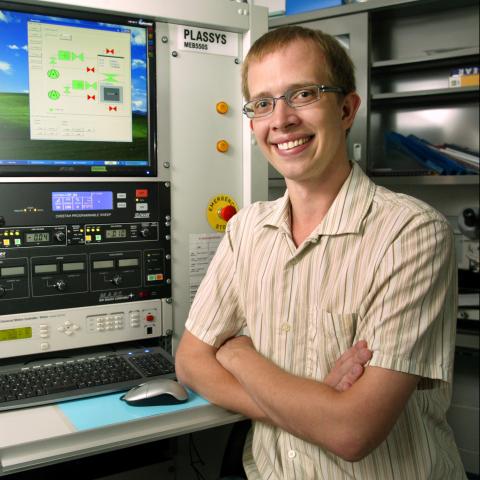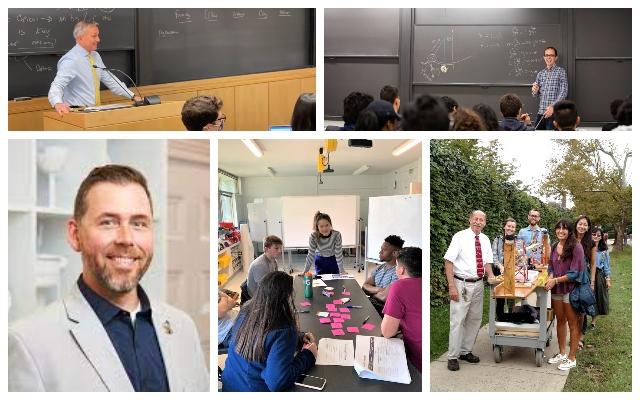
My research group is looking at ways of building a robust scalable quantum architecture. While small qubit systems have been developed and microwave cavities have been shown to make a good quantum bus connecting these qubits, large-scale quantum computers remain a distant goal. Quantum information is quite fragile, and individual qubits are currently plagued by information loss, called decoherence. Are there ways of building individual qubits that are robust to dominant noise sources? Even if perfect qubits could be achieved, new problems arise as circuits get more and more complicated. How can we wire up complex systems without destroying the individual parts? These are the types of quantum computing questions we address experimentally. We also study quantum and non-linear optics. Although people tend to think of lasers when they hear the term “optics,” the oscillating voltages and currents in a microwave circuit are also photons, and all principles of quantum optics apply to these devices as well. In fact, non-linearities can be much stronger in microwave devices, allowing us access to a very interesting regime of quantum optics. The goal of this area of research is to address the central question: What happens when a system is non-linear at powers where quantization is important?


